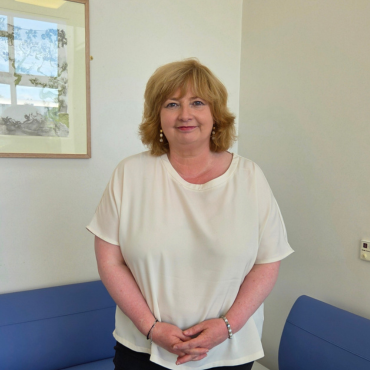Q&A with Hilary Craig
(opens in a new window)hilary.craig1@ucdconnect.ie
 What are the key points of your research synopsis?
What are the key points of your research synopsis?
The research project was aimed to investigate the treatment preferences of patients with obesity complications such as diabetes, metabolic dysfunction–associated steatotic liver disease (MASLD), hypertension, and chronic kidney disease (CKD). I used the methodology known as participatory action research to capture patient’s voices and experiences to gain an in-depth understanding of patient perspectives. Participatory action research (PAR) facilitates expanding knowledge through collective reflection and investigation between researchers and participants. Obesity has become a global epidemic, representing a major health crisis, with a significant impact both in human and financial terms. By evaluating patient‐preferred treatment options and factors influencing patients, can improve treatment adherence and consequently efficacy. Incorporating patients’ perspectives into chronic disease management marks a significant and innovative shift in healthcare delivery. The study highlighted two key areas: patient-centred care and equity.
Patient-Centred Care: Patients reported feeling that their care was fragmented and incoherent. My research found that effective care involves enhancing the knowledge of healthcare professionals about obesity and improving patients' health literacy regarding the condition. The results of my study indicated that the development of integrated training programs for healthcare professionals run in conjunction with health literacy programs for patients may well have a positive effect on care. Feedback from the patient participants indicated that support from the community, family, and healthcare professionals is crucial in achieving patient engagement in treatment strategies for obesity.
Access and Cost: Improving access to treatment pathways and reducing costs is also essential to ensure that all have equal access to care. There are various treatment modalities available for addressing obesity, including lifestyle changes, nutritional therapies, exercise therapies, pharmacotherapies, and surgical interventions. However, many patients find their options limited to the most simplistic approach i.e., lifestyle advice by their HCP or on occasion a dietician, and are often not offered other interventions. Participants expressed concerns about the medical management of obesity, including obesity medication, efficacy, side effects, lifelong treatment, and cost. Access to the aforementioned health literacy program should address this issue. Equity in Obesity Management: People seek treatment based on their need for it. Unfortunately, the resources provided by the current global management of obesity is insufficient to address this health care crisis. There is an urgent need to re-evaluate our approach, identify the reasons for the limitations of current standards of care, and implement management algorithms that will enable standardise treatment strategies for obesity and provide access to all relevant interventions on a per patient basis. Everyone should have equal access to health care, regardless of their ability to pay. While promoting healthy behaviours is essential for improving the population's overall health, these strategies alone are often insufficient for treating patients with obesity.
Could you share some highlights of your experience as a PhD student?
Embarking on a PhD journey has significantly expanded my intellectual horizons. Through in-depth study of the subject, interactions with patients, and meticulous analysis of outcomes, I have developed a range of new skills while enhancing my critical thinking, writing, and analytical abilities for effectively reporting results. Presenting these findings at conferences and fielding questions from interested parties enabled me to articulate the results with clarity, a skill that proved invaluable during my defense at the Viva Voce.
What advice would you give to someone considering undertaking a PhD?
Pursuing a PhD is a substantial commitment that demands dedication, perseverance, and the ability to sustain focus throughout the process. Having a supportive supervisor who is genuinely invested in your research can be immensely advantageous; they not only provide guidance but also connect you with valuable resources and individuals who can assist in the development of your work. While the journey toward a PhD resembles a marathon, the rewards are truly significant. During this experience, you will gain in-depth knowledge, enhance your skills, and foster both confidence and curiosity. UCD offers a wealth of facilities, tools, and expertise to support you along the way. Although the path can be challenging at times, the ultimate rewards make it all worthwhile
What were some great aspects of pursuing your PhD at UCD?
Having a supportive and engaged supervisor is crucial to the journey of pursuing a PhD. I was fortunate to collaborate with a world-class expert who provided invaluable guidance throughout my experience. The lecturers in my courses were exceptional and highly engaging, enriching my learning. Committing to a PhD is a significant undertaking, making it essential to stay aligned with your research question. The facilities and staff were outstanding, and I particularly appreciated the UCD library and its librarians, who proved to be an invaluable resource, especially toward the end of my studies. Furthermore, the team at the School of Medicine was excellent in addressing any questions I had along the way.